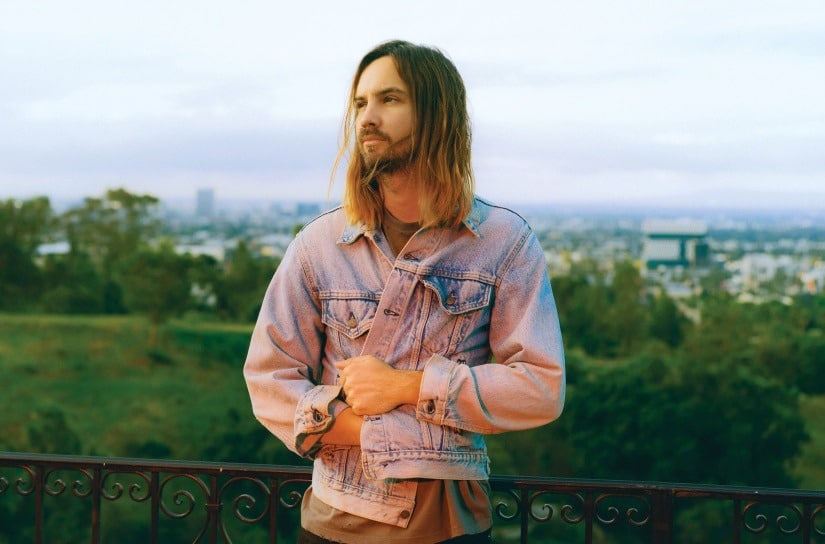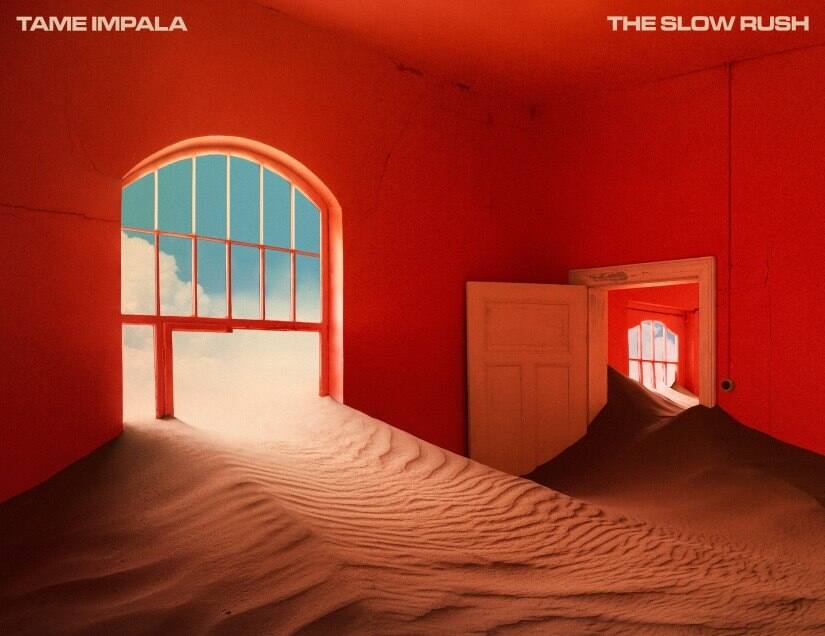The music of Tame Impala has always been a study in paradoxes. There’s the post-genre paradox: with each album, the boundaries between pop and alternative music seem to blur. There’s the paradox of the nostalgic progressive as the music feels both retro and contemporary at the same time. Then, there are the essential paradoxes that define music itself: it is an expression of private sentiments in a public sphere, and listening to it can be a solitary and shared experience. Haunted by time, past turmoils and how time moves in times of turmoil, Kevin Parker — the heart, voice and mastermind behind Tame Impala — adds a temporal paradox in their fourth album, The Slow Rush. [caption id=“attachment_8044381” align=“alignnone” width=“825”]  Kevin Parker.[/caption] Time seems to fly faster as we grow older. In our youth, the lazy summer vacations seemed to stretch on forever. But as we age, those vacations constitute a smaller and smaller fraction of our life as a whole. So, we tend to think of them as more recent events than they really are. It is only when you consciously reflect on the movement of time, it slows down — what Parker describes with the oxymoron, ‘The Slow Rush.’ The time lost, never regained and forever romanticised becomes a recurring motif throughout the new record. Even as Parker reflects on past memories and the people that populate them, he reminds himself to stop reveling in nostalgia. Take the chorus of ‘Lost in Yesterday’: ‘Cause it might’ve been something, who’s to say? / Does it help to get lost in yesterday? / And you might’ve missed something, don’t say / ‘Cause it has to be lost in yesterday / And you’re gonna have to let it go someday / You’ve been diggin’ it up like Groundhog Day / ‘Cause it might’ve been something, don’t say / ‘Cause it has to be lost in yesterday. Of course, Tame Impala’s music has always reveled in nostalgia. If Innerspeaker and Lonerism held you in a force field of slow-burning neopsychedelia, Currents gave us a polyphonic swirl of synth extravagance and disco beats. Continuing in this pop-friendly and electronica-driven direction, The Slow Rush offers us a technicolor spectrum of stylistic distractions that take you back to the lush harmonies of Supertramp and the intoxicating grooves of Daft Punk. Between the opener ‘One More Year’ to the closer ‘One More Hour’, Parker goes from second-guessing himself in life and love to accepting his choices. ‘Instant Destiny’ reveals his impulsive side as he sings in feather-light falsetto about a spur-of-the-moment Miami wedding. A light ensemble of bongos and keyboards dances over the sunny guitar licks in ‘Borderline’, where the verses and choruses are near-indistinguishable. ‘Posthumous Forgiveness’ is a time-cures-all-wounds ode to his late father, where the melody masks a wistful lyrical centre, one with the potential to become lost in the song’s prog synths, drum fills and hook-filled chorus. [caption id=“attachment_8044431” align=“alignnone” width=“825”]  The Slow Rush cover.[/caption] One of the album’s highlights is ‘Breathe Deeper’, which paints a magnificent vista of disco and contemporary R&B, but also has some parts which feel like something out of Fleetwood Mac’s Tango in the Night. If you thought the album was heavy in theme, ‘Is It True’ — in all its Daft Punk goodness — is sure to keep us light on our feet. The following track ‘It Might Be Time’, which is all sorts of Supertramp goodness, gives the feeling as if music has hijacked and recalibrated our perception of time. ‘Tomorrow’s Dust’ makes you feel the warmth of sunshine from those summer vacations we spoke of earlier. Parker concludes the album with “One More Hour”, which sees Parker reconcile with his past and present: “Whatever I’ve done, I did it for love. I did it for fun.” If Lonerism set the benchmark by which Tame Impala’s subsequent records would be judged, Currents made for a compelling, if not flawless, statement against complacency. With The Slow Rush, Parker shows his refusal to play to old strengths, refracting his experimental flair into a potentially polarising direction. Such departures in style may not be welcomed by the more stringent fans, but the more receptive ones will be heartened to hear fresh sounds, even if the result isn’t always a complete success. If The Slow Rush doesn’t quite lull you into a satisfied sonic stupor as Lonerism did, it’s more a measure of the 2012 album’s paradigm-setting artistry, not the new one’s lack of it. Because when Tame Impala get it right, time seems to stand still.
With The Slow Rush, Tame Impala’s Kevin Parker shows his refusal to play to old strengths, refracting his experimental flair into a potentially polarising direction.
Advertisement
End of Article


)
)
)
)
)
)
)
)
)



